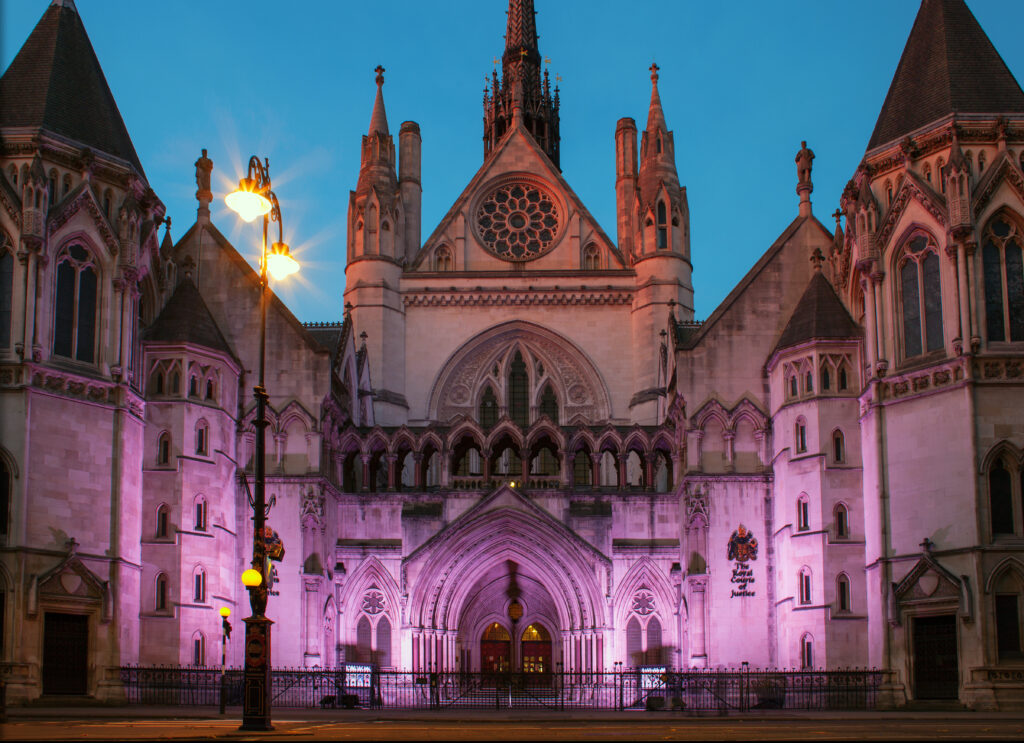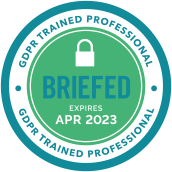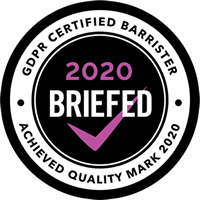
INJUNCTION TO PREVENT COMPANY ‘HIJACK’: FINDMYCLAIMS.COM LTD V HOWE [2018] EWHC 1833 (CH)
26th June 2019
Summary
This case concerned the law of meetings; specifically, the scope of the residual common law power of the chairman of a general meeting to adjourn the meeting of his own accord.
This power was identified in the leading case of Byng v London Life Association Ltd [1990] Ch 170. However, few cases have considered it since.
In Findmyclaims.com Ltd v Howe [2018] EWHC 1833 (Ch), the question was whether the chairman had been entitled to refuse to allow the meeting to proceed in circumstances where there was a dispute as to whether one of the attendees was entitled to vote, and where, if that vote were to be allowed, it would be determinative on the resolution.
What had actually happened was that after the chairman of the general meeting had declared that he would not open the meeting if the person with the disputed shareholding remained in attendance, certain other attendees had purported to appoint a replacement chairman in order to take over the conduct of the meeting. The new purported chairman then put certain resolutions to the meeting, including resolutions for the appointment of two new directors, and those resolutions were then purportedly passed at the meeting, with the votes attributable to the disputed shares being cast in favour. In this way, the shareholders who had taken over the conduct of the general meeting were able to ‘hijack’ the company, including by having their new directors then purportedly agree to board resolutions to change the company’s bank mandate, appoint a new chairman of the company and amend the company’s file at Companies House.
The company then applied for an injunction to restrain the new purported directors from acting, or holding themselves out as directors of the company. The matter came before Zacaroli J, who granted interim injunctions in the terms sought. In doing so, the Judge accepted that it was at least arguable, by analogy with Byng, that the chairman had been entitled to prevent the meeting proceeding, which meant that there was a serious issue to be tried as to whether the resolutions purporting to appoint new directors were valid.
Background
The company was involved in the business of managing PPI claims. It had four registered shareholders, each holding one share. A former director (“H”) wrote to the company claiming that he held two shares (i.e. one third of the total). The company rejected H’s claim.
Two shareholders who supported H then requisitioned a general meeting to consider resolutions to appoint additional directors, including H. Despite having been informed by the company that he was not entitled to do so, H attended the general meeting and then refused to leave when asked. The chairman indicated that he would not allow the meeting to proceed while H remained. After some argument, a proxy for one of the requisitionists declared the meeting open and proposed the appointment of a new chairman. The resolutions for the appointment of the new directors were then purportedly passed, against the protestations of the original chairman and with H participating and voting in favour. Straight after the purported installation of these new directors, a meeting of the board of directors was purportedly convened and various board resolutions were passed, including to replace the chairman, change the company’s bank mandate and pay a dividend.
The company applied for an interim injunction to restrain H and his fellow appointee from acting as, and being held out as, directors of the company.
Issues
The main question was whether there was a serious issue to be tried. The issue was whether the purported resolutions for the appointment of the new directors were valid, given that the original chairman had determined that the meeting could not be opened or proceeded with while H was in attendance. In other words, was the chairman’s declaration that he was not opening the meeting effective to prevent any business being conducted?
In Byng, Sir Nicholas Browne-Wilkinson VC concluded that in any circumstances where it was not possible validly to ascertain the views of the majority at a general meeting, the chairman had a residual common law power to adjourn the meeting.
The problem that had arisen at the meeting in Byng had concerned the adequacy of the meeting venue and facilities. The problem in the present case was very different; no issue arose in relation to the meeting venue, but there was a dispute as to whether one of the attendees was actually a member entitled to vote.
The applicant argued that the dispute over whether or not H held shares in the company, which would give him the ‘swing’ vote, meant that, just as in Byng, it was not possible validly to ascertain the wishes of the meeting. Accordingly, the applicant claimed that the residual power identified in Byng had been available to the chairman, and that his declaration that the meeting would not be opened had therefore been effective to bring the proceedings of the meeting to a halt.
The respondents contended that it had been possible for the meeting to proceed. They argued that the chairman’s job is “to let people get on and vote at the meeting”, and that there had been nothing to stop the chairman doing just that in the present case. Thus, in the light of the chairman’s refusal to proceed with the business of the meeting, it had been open to others in attendance to take over the conduct of the meeting by appointing a new chairman who could then proceed to put the resolutions. They pointed to regulation 42 of the Companies Act 1985 Table A, which applied to the company and which permits the board to appoint a replacement chairman if the original chairman is not willing to act. The respondents also relied upon the statement of Chitty J in National Dwellings Society v Sykes [1894] 3 Ch 159, at 162, that the chairman of a meeting does not have, “the power to stop the meeting at his own will and pleasure”.
Decision
Zacaroli J agreed with the applicant’s analysis. While the case was not on all fours with Byng, he considered that it was sufficiently arguable, on a proper reading of Sir Nicholas Browne-Wilkinson VC’s judgment, that the chairman’s residual power extended to circumstances where there was no practical utility in continuing with the meeting because the views of the meeting could not be obtained without the prior question as to who was entitled to vote (where that vote was determinative) being resolved.
The judge held as follows: “In circumstances where, first, there is a clear dispute as to whether someone has a swing vote and, second, in the absence of that vote there would be deadlock, it seems to me that there would have been no point in going on to put the resolutions to the meeting”.
The judge therefore concluded that there was a serious issue to be tried as to whether the resolutions for the appointment of the new directors that had purportedly been passed in defiance of the original chairman’s declaration that the meeting could not proceed were valid. In the circumstances, he was prepared to grant an interim injunction preserving the status quo prior to the passing of the disputed resolutions, pending determination of the issues in the case.
Comment
Situations in which it is simply not possible for a chairman to get a genuine ‘sense of the meeting’ are naturally very uncommon. A chairman will normally be able to obtain an understanding of the majority view through a vote. This means that circumstances in which the residual common law power identified in Byng will arise will be very unusual, and that the question of whether or not a meeting may be adjourned will instead normally depend upon the application of an express power to adjourn under the company’s articles of association.
Byng concerned practical problems relating to the inadequacy of the meeting venue and facilities; i.e. a situation where it was simply not possible to hold a proper meeting. Findmyclaims.com Ltd showed the Court’s preparedness, albeit at an interim stage, to allow for the exercise of the chairman’s power to adjourn a meeting in a very different context; where, although there was no practical impediment to the meeting, the circumstances were such that proceeding would have been pointless.
On the particular facts of Findmyclaims.com Ltd this was a perfectly understandable approach. The registered shareholders were divided into two camps, each with two shares, and they were clearly at loggerheads in relation to the proposed resolutions. In those circumstances, the additional two shares that H claimed to hold would obviously have been determinative on any vote. It was on this basis that the judge held that proceeding with the meeting would, “have achieved no practical purpose, as the underlying question – whether the result was truly representative of those entitled to vote – would not have been resolved”.
Nonetheless, it must be recognised that this represents an extension of the scope of the residual power compared to the kind of situation illustrated by Byng. Notably, the basis for the exercise of power to adjourn in Findmyclaims.com Ltd seems to have been the chairman’s appreciation of the utility of proceeding with the business of the meeting. The fact of the matter is that he could have allowed the meeting to proceed, and it would have been open to him in his position as chairman to exclude H’s votes. He could even, as was recognised in the judgment, have resolved the resulting deadlock between the registered shareholders by exercising his casting vote. However, the judge was prepared to recognise that the chairman’s power to adjourn could arise by virtue of the fact that if the meeting had proceeded, any vote would have been subject to the underlying dispute; meaning that, as the judge put it, there would have been “no point” in putting the resolutions.
If the circumstances in which the chairman’s residual power to adjourn a general meeting are not confined to situations where it is simply not possible in practical terms to conduct a proper meeting, it is necessary to consider the proper extent of this power. It might be suggested that, at its highest, Zacaroli J’s judgment could support an argument that a chairman could adjourn a meeting of his own accord in any case where he was not satisfied that putting the question of an adjournment to the meeting itself would produce a definitive outcome; i.e. a vote one way or the other that was not susceptible to being impugned by anyone. However, this would suggest that a chairman would be entitled to exercise the residual power to adjourn a meeting merely if he anticipated that the outcome of the vote would be deadlock. It is very doubtful that the power should apply in such a case; the mere fact that a deadlock might be anticipated would not be a good reason for not putting the matter to the vote in the first place.
The better view is that if the residual power to adjourn is to arise other than purely for reasons concerning the practicability of holding the meeting, it should only be where the chairman anticipates that the result of a vote will not be a reliable reflection of the views of the persons actually entitled to vote. The relevance of the fact that there was deadlock between the registered shareholders in the Findmyclaims.com Ltd case was merely that it meant that H’s votes would inevitably have been ‘swing’ votes, so that the chairman could reasonably contend that the outcome of any vote could not be treated as reliable.
Another point to note arising from the Findmyclaims.com Ltd case is that, unlike in Byng, the chairman did not, at least explicitly, purport to adjourn the meeting. Instead, he declared that he would not open the meeting. It was accepted that the gathering of people in the room still constituted a meeting, but the effect of what the chairman was seeking to achieve was simply to prevent that meeting proceeding to conduct any business; he did not seek to adjourn the meeting to a later date. However, there was no suggestion by the respondents, or in the judgment, that the absence of any overt reference to adjourning the meeting presented a difficulty for the applicant in seeking to establish that the chairman had validly precluded the business of the meeting being conducted.
There is no question that the residual common law power of a chairman to adjourn a general meeting (or, as in the present case, to prevent it from proceeding) remains exceptional. Nevertheless, the approach taken in Findmyclaims.com Ltd may encourage others to test its boundaries in cases where disputes over shareholdings mean that there is doubt as to whether the views of the majority could validly be ascertained.



